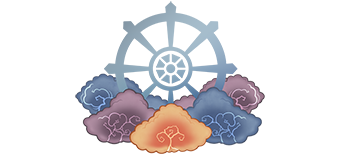Blog: Having Compassion for Yourself and Others
Blog: Having Compassion for Yourself and Others
By Isa Gucciardi, Ph.D.
How attentively do you listen to yourself? Are you engaging in negative self-talk? Are you seeing your own self-talk reflected in how you talk to others? Are others having a reaction? Is it hard to ignore or deny that reaction?
Here’s a hint: There is probably a part of yourself that is hearing that negative self-talk and having a reaction similar to those around you who you might be treating in the same way. This is one of many benefits of being in relationship. We can learn about ourselves and see ourselves through the lens of relationship.
We may able to look away from the effect of negative self-talk on ourselves, but others are less likely to allow us to remain in that kind of denial as they react to it. By paying attention to how others are reacting to you, determining to investigate your inner landscape for any similar reactions, and remaining steadfast in your efforts to be kind to yourself when you discover you have been “a butt” to yourself (as my son used to say in middle school), you are taking important steps towards greater self-awareness.
This idea that our external relationships reflect our inner relationship with ourselves is an important one. Most of us are barely aware of the effect of our behavior on others, much less the effect of our behavior on ourselves. This is because we are not paying attention – or because we are in denial – not because there is not a strong effect. As we become aware of how our external relationships may be showing us something about our relationship with ourselves, lights begin to go off.
Are you in a job where you have an abusive boss? Are you in a relationship where your spouse ignores your requests for assistance? Are you mean to your sister?
I am not saying there is a one-to-one correlation here – that if you are in a relationship with a boss who is abusive that you may have a part that is abusive and a part that is receiving that abuse. It may be the case, however, and if it is, your relationships with others are showing you a lot about yourself that you might have missed either because you were in denial or because you were not paying attention.
Notice the dynamics in your external relationships – especially similar dynamics that repeat across different relationships – or dynamics that you would rather not look at. This kind of inquiry may result in some “Ah ha!” moments, and sometimes they can be a bit unsettling. There was a reason why you stopped paying attention or went into denial in the first place. It was unsettling to feel the emotions or think the thoughts or feel the physical discomfort that might be coming up now.
One thing I always tell my clients is, “The only way out is the way you came in.” If you are breaking up a habit of not paying attention or a habit of denial about the effect of not paying attention, you are going to run into what you were not paying attention to as you start walking back out the way you came in. It can be hard, but there really is no other way to truly change your habit of not being present.
So remember, you are trying to become more aware, not looking for reasons to blame yourself or others for your situation. If you find it hard to pay attention and find you need some help stabilizing your attention, you might want to check out this meditation.
This is another place where relationships with others can come in handy. Think of someone who has generally been nice to you, or someone who you think might be nice to you if you were to ask for help. In Buddhism, there is a concept called taking refuge. It is a complex idea, but one part of refuge is taking refuge in like-minded individuals. In this case, it means finding people around you who are also interested in learning how to pay attention and figuring out how to be nice to themselves and others while they are doing that.
As you talk about your findings with them, you may offer them insight about their process of waking up. This is how conscious relationships work. It is not that conscious relationships are necessarily easier – in fact most people would say that they are harder, at the beginning anyway. When you realize that relationships may have something to offer you even in the hard times, it is easier to stay present.
At this point of learning to pay attention, it is important to fuel the fires of kindness and compassion. It is easy to feel overwhelmed by the situations we have unconsciously created. This is especially true when we realize how we have been creating the same problems in multiple external relationships, and in our relationship with ourselves.
For now, just watch the back and forth in your internal communication, notice how your relationships with others might reflect that back and forth, and try to be kind to yourself and others as your awareness is changing. This meditation on compassion might also help. The meditations on The Four Immeasurables, more generally, will provide you with a ground from which to approach experience that might seem overwhelming as you begin paying attention in new ways.
As we are waking up to what our relationships might be showing us about ourselves, it is important to remember Chogyam Trungpa’s words about our experience: “The Lion’s Roar is the fearless proclamation that any state of mind, including the emotions, is a workable situation … transmutation is not a matter of rejecting the basic qualities of the emotions … you experience emotional upheaval as it is but still work with it.”

